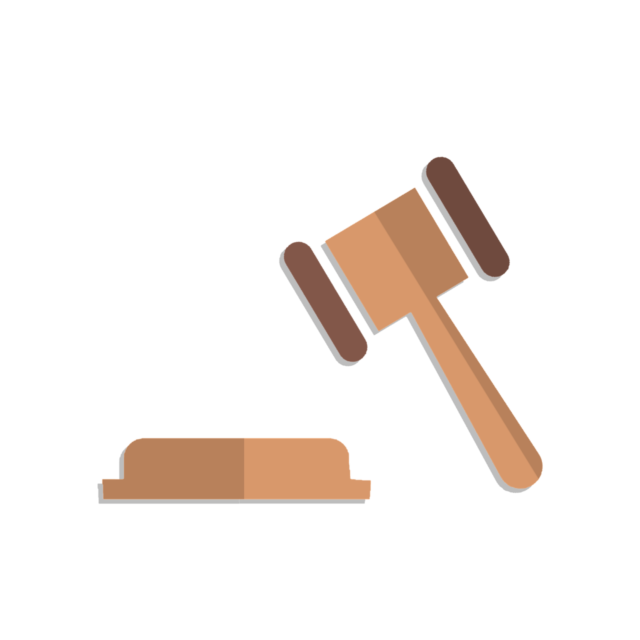INTRODUCTION
The Rome Statute of the International Criminal Court (“the Rome Statute”), which was ratified by 120 nations on July 17, 1998, led to the creation of the International Criminal Court. Following the Rome Statute’s entry into force on July 1, 2002, governments made the first-ever decision in human history to agree to a permanent international criminal court’s jurisdiction over the prosecution of those responsible for the most heinous crimes committed on their soil or by their citizens. The International Criminal Court does not substitute for domestic courts.
The Rome Statute mandates that each State exercise its criminal jurisdiction over those who commit transnational crimes. Only in cases where a State is unable or unwilling to conduct an honest investigation and impose just punishments on the criminals may the International Criminal Court step in. The main goal of the International Criminal Court is to contribute to the prevention of such crimes by helping to end impunity for those who commit the most heinous crimes that have an impact on the entire international community. In the long run, a knowledgeable public may contribute to ensuring that international justice is upheld and applied.
HISTORICAL PERSPECTIVE
Some of the most heinous crimes were committed throughout the wars of the twentieth century. Sadly, many of these violations of international law have gone unpunished. The Nuremberg and Tokyo tribunals were established after World War II. The UN General Assembly understood the necessity for a permanent international court to handle the kinds of atrocities that had recently happened when it established the Convention on the Prevention and Punishment of the Crime of Genocide in 1948.
After the end of the Cold War, the idea of a global criminal justice system reappeared. However, the world saw atrocious crimes being committed on the soil of the former Yugoslavia and Rwanda while the United Nations was considering the ICC Statute. The United Nations Security Council established ad hoc tribunals in each of these situations as a response to these atrocities. These events unquestionably had an impact on the choice to hold the Rome-based conference that established the ICC in the summer of 1998. On July 17, 1998, a meeting of 160 nations established the first treaty-based permanent international criminal court. The Rome Statute of the International Criminal Court is the agreement that was adopted during that conference.
The Assembly of State Parties, which convenes at least once a year, defines general guidelines for the Court’s management and performs an annual assessment of its activities. The state parties review the activities of the working groups they established, as well as any other issues relating to the ICC, at these sessions. They also discuss new initiatives and approve the ICC’s annual budget. All of the regions are represented by the over 120 state parties to the Rome Statute, including Western Europe, North America, Asia Pacific, Latin America, Eastern Europe, and Africa.
FUNDING
The Court accepts voluntary donations from governments, international organizations, people, businesses, and other entities in addition to the majority of state parties that pay its costs.
VOTING POWER & COMPOSITION
- The Assembly of state parties is the administrative, oversight, and legislative body of the Court, and it is made up of one delegate from each state party.
- Every attempt must be taken to reach a consensus on all issues, and each state party has one vote. Decisions are voted on if consensus cannot be obtained.
- The president and two vice-presidents of the Assembly are chosen by the members to serve three-year terms.
WORKING OF ICC
- Every state party to the Rome Statute has the right to ask the prosecutor’s office to conduct an investigation. An investigation into crimes committed on its territory or by one of its residents may likewise be requested by a State that is not a party to the Statute and agreed to. Additionally, the UN Security Council has the authority to send this case to the Court.
- When a Public Prosecutor’s Office receives pertinent information about the defendant and determines that there is cause to pursue an investigation, and the crime involves residents of a State Party or State that has acknowledged ICC jurisdiction or the crime is committed on the territory of any such State, the Prosecutor may launch an independent investigation. Such information may be provided by people, intergovernmental and non-governmental organizations, or other reliable sources. However, the prosecution must get the go-ahead from the Pre-Trial Chamber judges before an investigation under certain circumstances may start.
- After carefully examining the information at hand, the Public Prosecution determines whether an inquiry is adequately substantiated. Therefore, it must establish if war crimes, crimes against humanity, or genocide has been committed, as well as whether they occurred after July 1, 2002. The prosecution must confirm whether a legitimate investigation or trial of the crime’s perpetrators is being carried out by any national entity.
- The prosecutor’s office dispatches its detectives to areas where crimes are alleged to have occurred, to gather evidence. Researchers must take precautions to ensure that witnesses and victims are not in danger. The prosecutor’s office often requests assistance from governments and international organizations. The goal of the investigators is to establish a subject’s guilt or innocence.
- If there are good grounds to believe that a crime has been committed within the ICC’s jurisdiction, only a pre-trial chamber may, upon the start of an inquiry, issue an arrest warrant or summons to appear.
- Upon the issuance of an arrest warrant, the Registrar is required to communicate applications for cooperation requesting the detention and rendition of the suspect to the State concerned or other States, depending on the ruling of the judges in each case. After the individual has been detained and the tribunal has been informed of this, the court assures that the person will be given a copy of their arrest warrant.
- The suspect makes his initial court appearance not long after arriving in The Hague. The first hearing confirms that the suspect was correctly identified in the Pre-Trial Chamber, ensures that the suspect is aware of the charges against him or her, confirms the language in which the hearing should be conducted, and specifies the day on which the hearing of charges will start.
- Before the trial begins, the judges of the Court consider any procedural issues that the parties might raise. They also schedule sessions to address these issues in advance of the trial so that it can proceed fairly and quickly.
- Throughout the trial, both the prosecution and the defence counsel have the opportunity to present their cases. The prosecution is required to present evidence to the court in order to prove the accused’s guilt beyond a reasonable doubt. Documents, other tangible objects, or witness declarations may serve as proof. The prosecutor must also be informed of any evidence indicating the defendant is innocent. Initial case presentation and witness testimony are requested by the prosecutor. After each witness has been questioned by the prosecution, the defence attorney has the opportunity to question the witness as well. After the prosecutor has presented all of the evidence, it is the accused’s chance to present a defence with the assistance of the counsel of their attorney.
- The judges determine the defendant’s guilt after hearing from the witnesses and the victims and having their testimonies reviewed by the prosecution and the defence. The sentence should be made public and wherever it is appropriate if the defendants, victims, or their legal representatives have taken part in the proceedings.
INTERNATIONAL CRIMINAL COURT RESTRICTIONS
The International Criminal Court’s operation is subject to the following restrictions and conditions:
- As there is no specialized police force or authority in place for the ICC, the organization depends on several nations to arrest and transfer guilty parties to prison facilities.
- The ICC selects its cases with great care.
- The legitimacy of the judges and ICC prosecutor is not routinely checked.
- The International Criminal Court has previously been charged with favouring powerful nations.
- With ICC, there is a lack of both people and financial resources.
- It has been charged with serving as a vehicle for western imperialism.
- For the ICC to be functional, state cooperation is required. This makes it less effective since criminals can seize power and escape being brought to justice by the ICC.
INDIA’S RELATION WITH ICC
- India declined to ratify the Rome Statute for the reasons listed below:
- Nationwide objectives
- State Authority
- Finding unbiased prosecutors is difficult
- The collection of evidence is difficult.
- Crime explanation
PROMINENT CASES
- Muammar al-Gaddafi: In 2011, the Security Council submitted the Libyan situation to the ICC on the basis of claims that the Libyan leader was responsible for the deaths of unarmed civilians during the Arab Spring protests. In June 2011, the court issued arrest warrants for Qaddafi, his brother-in-law, and his son. But he fled, and before he could be found, he was slain. The son of Qaddafi, Saif al-Islam, is still at large.
- Uhuru Kenyatta: The 2010 violence that claimed more than 1000 lives was the subject of an inquiry by the ICC. Five other prominent political figures, including Kenyatta, were identified as suspects in crimes against humanity and war. As Kenyatta won the presidency in 2013 with William Ruto, another ICC suspect, as his running partner, the inquiry went on. In 2014, the ICC dismissed its allegations against Kenyatta, and in 2016, it dropped its charges against Ruto. The prosecutor’s office also asserted that the Kenyan government was unhelpful and that the case collapsed as a result of witness manipulation.
CONCLUSION
To end clemency for the most egregious crimes of concern to the international community and to aid in their prevention, the International Criminal Court (ICC) was founded. The court’s role as a protector of individual rights in the new humanitarian international order, however, is in jeopardy due to a severe enforcement issue. The increasing relegation of the political issues of the affected populations in the post-conflict zones to the background of international criminal proceedings, in addition to the ICC’s enforcement issues, threatens to make the entire organization obsolete.
Achieving the important objectives of international criminal law requires the existence of effective democratic institutions at the national level because the vast majority of contemporary conflicts are likely to be internal wars that break out in opposition to authoritarian rule or response to repressive and undemocratic governments. Justice for atrocity victims and nation-building may appear to be at odds, but a practical approach to international criminal justice administration can accomplish the former while also ensuring the required democratic framework for the latter.
This article is written by Aditi Jangid, 1st year law student pursuing bachelor’s degree from Delhi Metropolitan Education (Affiliated to GGSIPU).

